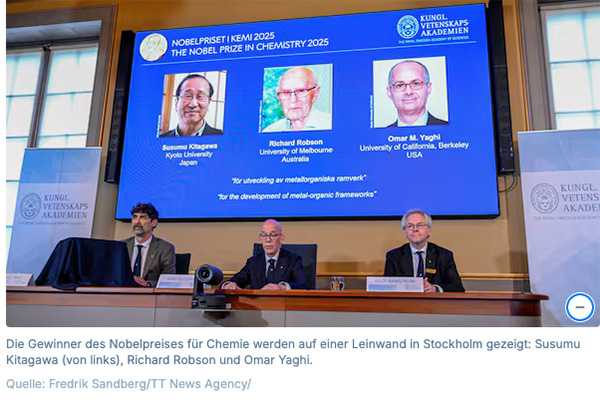This year’s winners of the Nobel Prize in Chemistry – Susumu Kitagawa (Japan), Richard Robson (Australia), and Omar Yaghi (USA) – were honored for developing an innovative class of materials: metal-organic frameworks (MOFs). These materials have the potential to fundamentally change energy and environmental research.
Thanks to the work of the laureates, chemists around the world have already been able to design tens of thousands of such compounds. Some of them could make a decisive contribution to overcoming global challenges, the Academy acknowledged.
Porous structures with great potential
MOFs consist of a network of metal ions and organic molecules. Their sponge-like structure with numerous tiny cavities enables them to store gases or separate substances in a targeted manner—properties that make them particularly valuable for a wide range of applications in environmental and energy technology.



